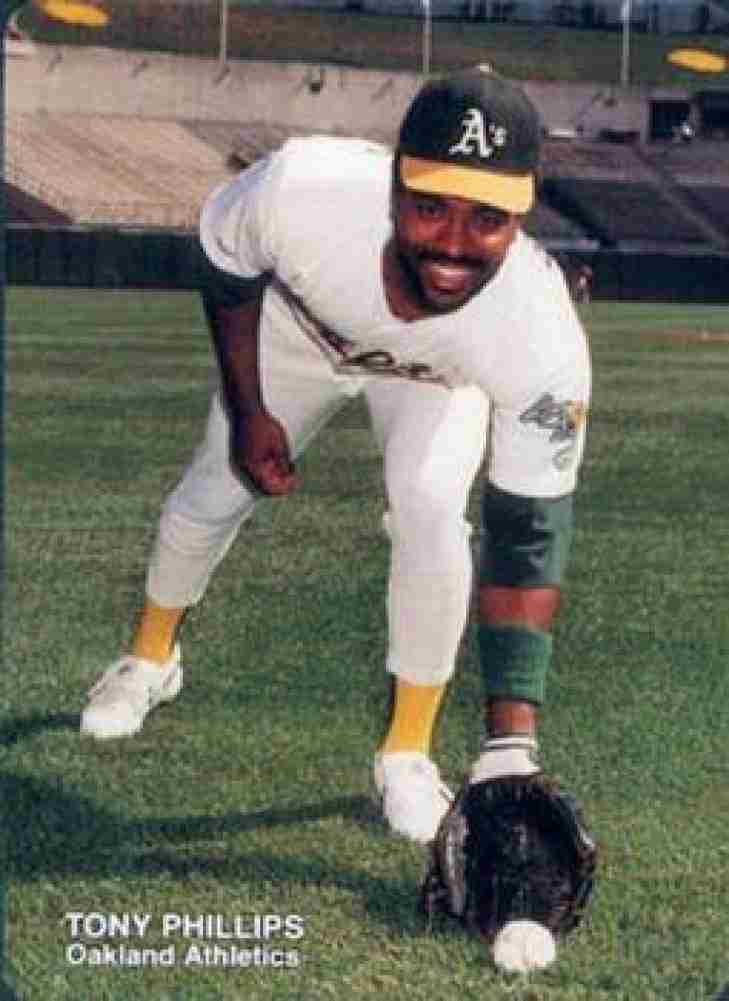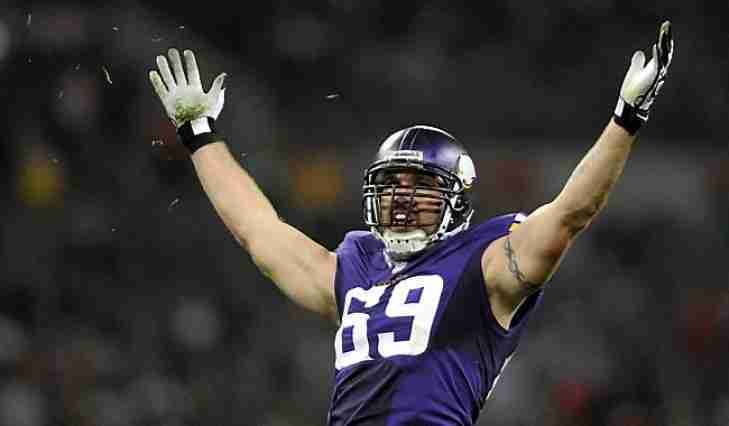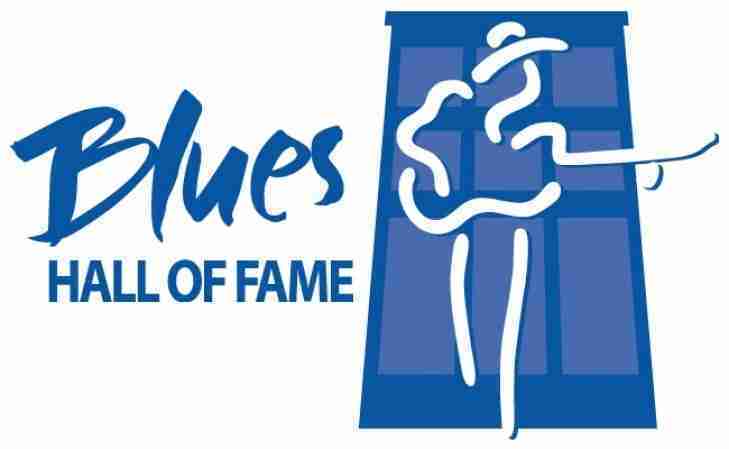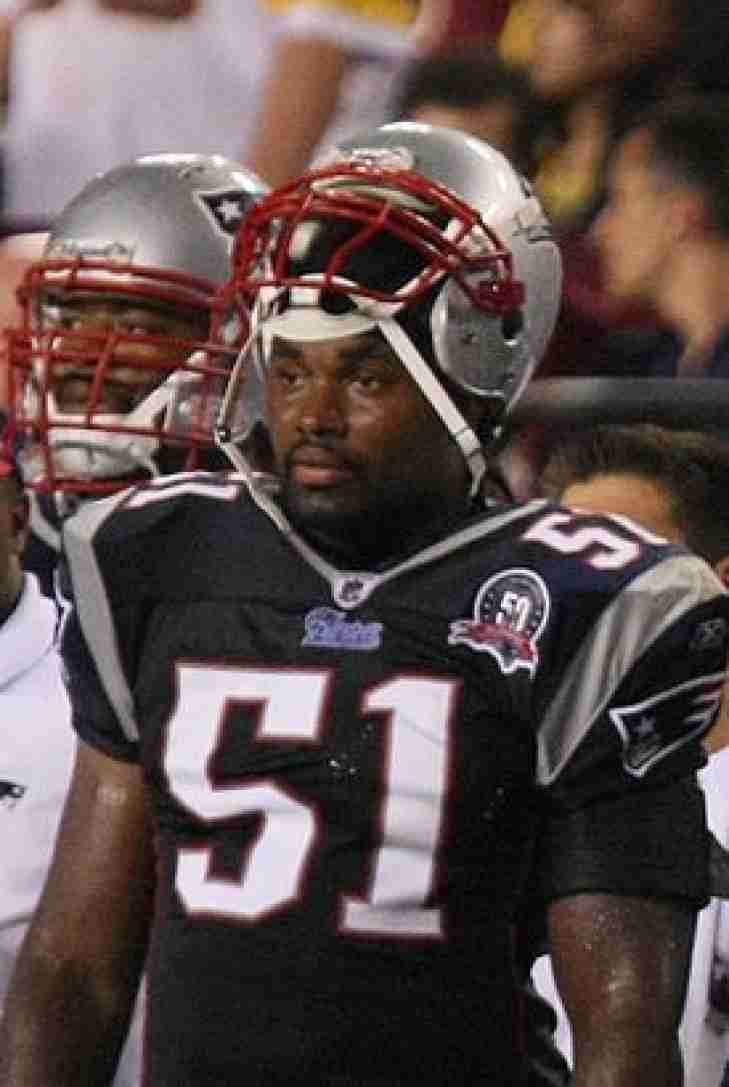
Committee Chairman
Kirk Buchner, "The Committee Chairman", is the owner and operator of the site. Kirk can be contacted at [email protected] .
RIP: Tony Phillips
Feb 20, 2016
Published in
Not in Hall of Fame News
It was announced today that former eighteen year veteran, Tony Phillips, passed away at the age of 56.
Phillips is best known for his time with the Oakland Athletics where in 1989, he made the final out in the franchise’s World Series win. While he is best known as an Athletic, he would actually have better individual seasons with the Detroit Tigers, where in 1992 he led the AL in Runs Scored, and the following season he had the most Walks.
He would also spend time with the Chicago White Sox, Anaheim Angels, New York Mets and the Toronto Blue Jays.
Phillips retired in 1999 and he amassed 2,023 Hits, 160 Home Runs, a Slash Line of .266/.374/.389 and a bWAR of 50.8.
We here at Notinhalloffame.com would like to extend our condolences to the friends and family of Tony Phillips at this time.
Phillips is best known for his time with the Oakland Athletics where in 1989, he made the final out in the franchise’s World Series win. While he is best known as an Athletic, he would actually have better individual seasons with the Detroit Tigers, where in 1992 he led the AL in Runs Scored, and the following season he had the most Walks.
He would also spend time with the Chicago White Sox, Anaheim Angels, New York Mets and the Toronto Blue Jays.
Phillips retired in 1999 and he amassed 2,023 Hits, 160 Home Runs, a Slash Line of .266/.374/.389 and a bWAR of 50.8.
We here at Notinhalloffame.com would like to extend our condolences to the friends and family of Tony Phillips at this time.
Jared Allen Retires
Feb 18, 2016
Published in
Not in Hall of Fame News
‘Tis the season for NFL retirements, and we have an epic one with Jared Allen who retired by literally riding off into the sunset.
Allen was drafted in the fourth round by the Kansas City Chiefs in 2004 out of Idaho State. The Defensive End would quickly become a starter and would become a fan favorite known for his quirk mannerisms and mullet hairstyle. In 2007, which would be his last season with Kansas City, Allen would make his First Team All Pro roster, first Pro Bowl and would lead the NFL in Sacks. He would also win the prestigious NFL Pass Rusher of the Year Award.
Allen would be traded to the Minnesota Vikings and would sign what was then the largest contract in NFL history for a defensive player. In Minnesota, the accolades kept coming. He made three more First Team All Pro Selections (2008, 2009 & 2011), won the NFL Alumni Defensive Alumni Player of the Year in 2009 and was named the NFC Defensive Player of the Year in 2011. In that season, Allen had 22 Sacks, which remains a Minnesota Vikings record.
He would later play with the Chicago Bears and finished off his career last season as a member of the Carolina Panthers where he appeared in last month’s Super Bowl.
Jared Allen finished off his career with 643 Tackles, 136 Quarterback Sacks and 6 Interceptions. He will be eligible for the Pro Football Hall of Fame in 2021.
We here at Notinhalloffame.com would like to congratulate Jared Allen for his great career, and the impressive way in which he retired.
Allen was drafted in the fourth round by the Kansas City Chiefs in 2004 out of Idaho State. The Defensive End would quickly become a starter and would become a fan favorite known for his quirk mannerisms and mullet hairstyle. In 2007, which would be his last season with Kansas City, Allen would make his First Team All Pro roster, first Pro Bowl and would lead the NFL in Sacks. He would also win the prestigious NFL Pass Rusher of the Year Award.
Allen would be traded to the Minnesota Vikings and would sign what was then the largest contract in NFL history for a defensive player. In Minnesota, the accolades kept coming. He made three more First Team All Pro Selections (2008, 2009 & 2011), won the NFL Alumni Defensive Alumni Player of the Year in 2009 and was named the NFC Defensive Player of the Year in 2011. In that season, Allen had 22 Sacks, which remains a Minnesota Vikings record.
He would later play with the Chicago Bears and finished off his career last season as a member of the Carolina Panthers where he appeared in last month’s Super Bowl.
Jared Allen finished off his career with 643 Tackles, 136 Quarterback Sacks and 6 Interceptions. He will be eligible for the Pro Football Hall of Fame in 2021.
We here at Notinhalloffame.com would like to congratulate Jared Allen for his great career, and the impressive way in which he retired.
The Blues HOF announces their latest class
Feb 19, 2016
Published in
Not in Hall of Fame News
Regular visitors to Notinhalloffame.com might have noticed that we have been working on the top fifty players of each North American franchise. We are continuing this with the look at our second NFL franchise, the Buffalo Bills.
The Blues Foundation announced their 2016 Hall of Fame Class today headlined by five new musical inductees.
The committee has chosen all Elvin Bishop, Eddy Clearwater, Jimmy Johnson, John Mayall and the Memphis Jug Band.
Bishop got his start with the influential group, The Paul Butterfield Blues Band and had a successful solo career. Clearwater and Johnson are still putting out new music and are both fifty years deep into their respective careers. John Mayall was the leader of his own group, the Bluesbreakers, which gave Eric Clapton his start. The Memphis Jug Band were praised for braking down racial lines in the first half of the twentieth century, a rarity for that time.
The Blues Hall will also be inducting two non=performers in Tommy Couch Sr. and Wolf Stephenson who worked behind the scenes at Malaco Records.
The book, Early Downhome Blues: A Musical and Cultural Analysis by Jeff Todd Titon is the literary entry.
“Blues in the Mississippi Night” the compilation album from 1959 was also inducted as were the singles “Crazy Blues” (1920) by Mamie Smith, “That’s All Right (1950) by Jimmy Rogers, “I Wish You Would” (1955) by Billy Boy Arnold, “Three Blazers” by Johnny Moore and “Blues Before Sunrise” (1934) by Leroy Carr and Scrapper Blackwell.
This group will be officially inducted on May 4 in Memphis, Tennessee.
We here at Notinhalloffame.com would like to congratulate the latest Hall of Fame class.
The Blues Foundation announced their 2016 Hall of Fame Class today headlined by five new musical inductees.
The committee has chosen all Elvin Bishop, Eddy Clearwater, Jimmy Johnson, John Mayall and the Memphis Jug Band.
Bishop got his start with the influential group, The Paul Butterfield Blues Band and had a successful solo career. Clearwater and Johnson are still putting out new music and are both fifty years deep into their respective careers. John Mayall was the leader of his own group, the Bluesbreakers, which gave Eric Clapton his start. The Memphis Jug Band were praised for braking down racial lines in the first half of the twentieth century, a rarity for that time.
The Blues Hall will also be inducting two non=performers in Tommy Couch Sr. and Wolf Stephenson who worked behind the scenes at Malaco Records.
The book, Early Downhome Blues: A Musical and Cultural Analysis by Jeff Todd Titon is the literary entry.
“Blues in the Mississippi Night” the compilation album from 1959 was also inducted as were the singles “Crazy Blues” (1920) by Mamie Smith, “That’s All Right (1950) by Jimmy Rogers, “I Wish You Would” (1955) by Billy Boy Arnold, “Three Blazers” by Johnny Moore and “Blues Before Sunrise” (1934) by Leroy Carr and Scrapper Blackwell.
This group will be officially inducted on May 4 in Memphis, Tennessee.
We here at Notinhalloffame.com would like to congratulate the latest Hall of Fame class.
Jerod Mayo Retires
Feb 19, 2016
Published in
Not in Hall of Fame News
Jerod Mayo, the 29 year old Linebacker with the New England Patriots announced via Instagram post that he would be retiring from the National Football League.
Drafted out of the University of Tennessee in the first round in 2008, Jarod Mayo made an immediate impact with the Patriots earning the Defensive Rookie of the Year Award. Mayo would enjoy his best year in 2010 when he made his first and only First Team All Pro roster and led the NFL in combined tackles. He would make the Pro Bowl again in 2012 and in 2015 was a member of the Super Bowl Champion Patriots team.
Mayo retires with 353 Solo Tackles and 11 Quarterback Sacks over 103 Games Played. Mayo will be eligible for the Pro Football Hall of Fame in 2021, though he is unlikely to get inducted. He is however likely to get inducted into the New England Patriots Hall of Fame in the future.
We would like to thank Jerod Mayo for the great memories on the field and we wish him the best in his post-playing career.
Drafted out of the University of Tennessee in the first round in 2008, Jarod Mayo made an immediate impact with the Patriots earning the Defensive Rookie of the Year Award. Mayo would enjoy his best year in 2010 when he made his first and only First Team All Pro roster and led the NFL in combined tackles. He would make the Pro Bowl again in 2012 and in 2015 was a member of the Super Bowl Champion Patriots team.
Mayo retires with 353 Solo Tackles and 11 Quarterback Sacks over 103 Games Played. Mayo will be eligible for the Pro Football Hall of Fame in 2021, though he is unlikely to get inducted. He is however likely to get inducted into the New England Patriots Hall of Fame in the future.
We would like to thank Jerod Mayo for the great memories on the field and we wish him the best in his post-playing career.





